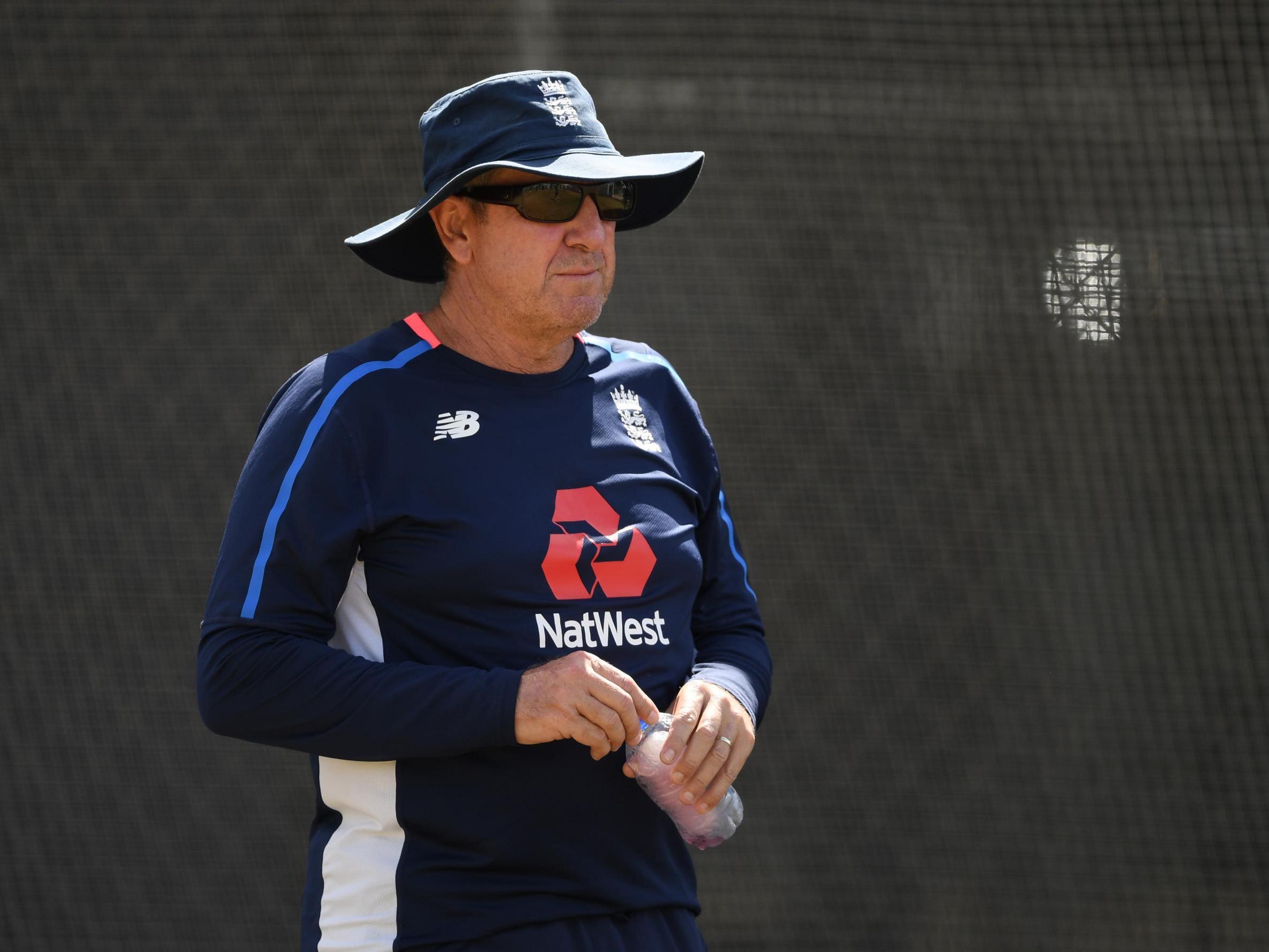Trevor Bayliss fears England are still trapped in a white-ball mentality
Bayliss strongly criticised the shot selection of some of his batsmen, blaming 'muddled messages' between England’s Test and one-day sides for their confused approach

Trevor Bayliss believes England’s Test side are still partly trapped in a white-ball mentality. Reflecting on their spectacular capitulation in the second Test against the West Indies, in which England were beaten by 10 wickets inside three days to lose the series with a game to spare, Bayliss rejected criticisms that they were “soft” or lacked a culture of improvement.
Instead, he strongly criticised the shot selection of some of the batsmen, blaming “muddled messages” between England’s Test and one-day sides for their confused approach. England’s challenge in Antigua evaporated in a fusillade of flashing drives and misjudged strokeplay. While the West Indies batted for 131 painstaking overs to compile their match-winning total, taking a number of blows to the body in doing so, England – with a couple of exceptions – refused to adopt the same mindset.
Bayliss said that while there had been plenty of talk within the dressing room of how to bat effectively in Test cricket, a number of players were still caught in between the two approaches. “I think they are more confident with how to play the one-day game,” Bayliss said. “They are still coming to terms with what is the best rhythm of playing their Test cricket. We’ve played poorly. We haven’t seemed to have the will to fight. There’s been some very loose shots, and other guys have been very tentative. It’s been one or the other, with not a lot in between.”
Under Eoin Morgan, England’s 50-over side has undergone a scintillating renaissance since 2015, rising to No 1 in the world and establishing themselves as the clear favourites to win the World Cup this summer. Yet many of those same players have struggled to re-adapt their games to the more nuanced and complex demands of Test cricket. “Sometimes I feel the message between one-day cricket and Test cricket gets muddled a little,” Bayliss said.
“There certainly hasn’t been a lack of talk about doing the hard yards, earning the right. If they’re bowling well early, and there’s a bit in the deck, get through that tough period. You bat time, you score runs. You can still be positive. That’s been the chat the whole time. Actually going out and doing it has been a different challenge.”
Indeed, with England crumbling to another series defeat away from home – their away Test record under Bayliss’s stewardship reads won 6, drawn 5, lost 15 – Bayliss admitted that most of the middle-order would have been dropped at some point had there been sufficient competition for places. In the last year no England batsman averages over 40, with Joe Root (33), Jonny Bairstow (31), Ben Stokes (25) and Moeen Ali (18) all significantly underperforming against what they are capable of in this format.
But herein lies the rub. In the absence of genuine competition from places, underperformance has been allowed to fester. “We have a lot of guys averaging in the low 30s,” Bayliss said. “In years gone by, that wouldn’t have been good enough to stay in the team. It would be great if somebody was pushing them from behind and giving them a little extra motivation.
“One of the things we’d like to see is plenty of guys in county cricket putting pressure on those blokes. But there doesn’t seem to be the ready-made international player who’s made plenty of runs and has the game that can succeed at international level.”
In many ways, a familiar refrain. Bayliss has been banging on about the dearth of world-class batting talent in county cricket for what seems like years now. But while the county production line has long been an area of some concern, Bayliss is hardly going to see any serious improvement in his seven remaining months in the job. And so it falls to him and the management team – assistant Paul Farbrace, batting coach Mark Ramprakash and captain Root – to make the very best of the talent they have. That, patently, has not happened.
England will at least be putting their two days off to good use. In the dressing room after the end of the game, Bayliss set the players a list of questions on how England could improve collectively and individually, giving them 24 hours to think of some answers ahead of a team meeting which was scheduled for Sunday afternoon. If there are echoes here of the infamous “homework” row that fractured Australia’s tour to India under Michael Clarke in 2013, then Bayliss insisted this would be a more informal process. “It won’t be me standing up in front of them like a schoolteacher,” he said. “Maybe around the pool or something like that.”
In terms of personnel, Bayliss did not rule out further changes ahead of the third Test at St Lucia. There were no guarantees, for example, that Jonny Bairstow would remain at No 3. “The jury is still out,” he said. “I think he’s more comfortable with batting lower down the order.”
The West Indies will have to make at least one enforced change: their captain Jason Holder has been banned for one Test due to the team’s persistent slow over rate at Antigua. It is Holder’s third such offence in the space of two years, and opening batsman Kraigg Brathwaite is likely to replace him.
Subscribe to Independent Premium to bookmark this article
Want to bookmark your favourite articles and stories to read or reference later? Start your Independent Premium subscription today.

Join our commenting forum
Join thought-provoking conversations, follow other Independent readers and see their replies